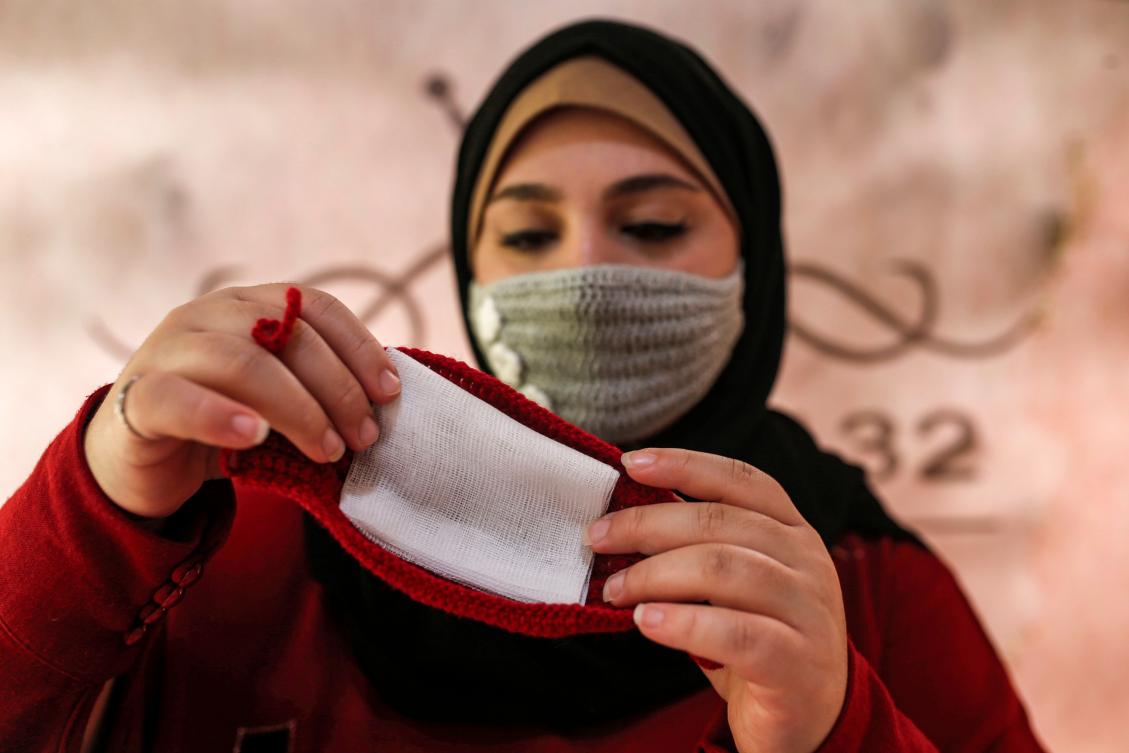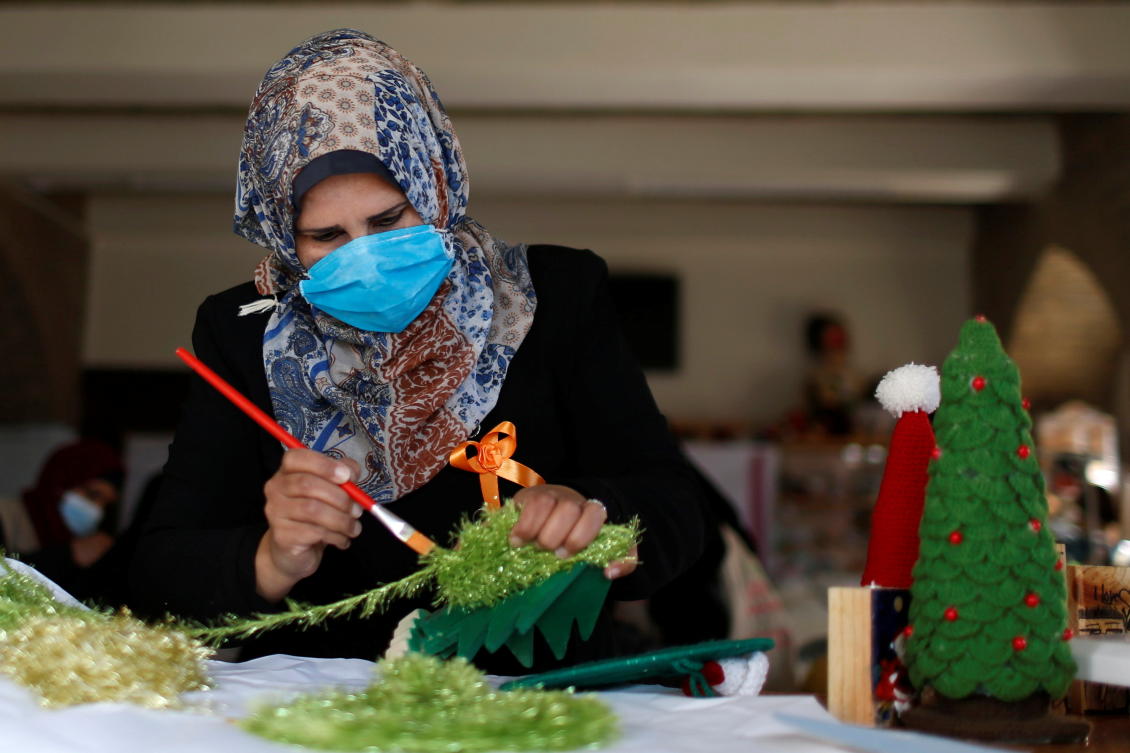In Iraq, virus revives traumas of Daesh survivors
BAJET KANDALA CAMP, Iraq: For half a decade, Zedan suffered recurring nightmares about militants overrunning his hometown in northern Iraq. The 21-year-old Yazidi was just starting to recover when COVID-19 revived his trauma.
Zedan had lost several relatives when Daesh stormed into Sinjar, the rugged heartland of the Yazidi religious minority in Iraq’s northwest.
The militants killed Yazidi men, took the boys as child soldiers and forced the women into sexual slavery.
Zedan and the surviving members of his family fled, finding refuge in the Bajet Kandala camp near the Syrian border where they still live today.
“We used to be farmers living a good life. Then IS (Daesh) came,” he said, wringing his hands.
In a pre-fabricated building hosting the camp’s mental health clinic, Zedan shared his traumas with Bayda Othman, a psychologist for international NGO Premiere Urgence. Zedan refers to the violence of 2014 vaguely as “the events.”
The UN says they may constitute something much more serious: Genocide.
“I started having nightmares every night. I would see men in black coming to kill us,” Zedan said, telling Othman that he had attempted suicide several times. He has been seeing her for years, learning how to cope with his Post-Traumatic Stress Disorder (PTSD) through breathing exercises that she taught him.
Earlier this year, his nightly panic attacks stopped. Finally, he could sleep again. But only for a few months.
In March, Iraq declared a nationwide lockdown to try to contain the spread of Covid-19. Zedan broke down.
“I fear that my family could catch the virus or give it to me,” he said. “It obsesses me.”
As lockdown dragged on, Zedan’s brother lost his job at a stationery shop on the edge of the camp.
“There’s no more money coming into the family now. Just thinking about it gives me a panic attack,” he said.
“The nightmares returned, and so did my desire to die.”
Out of Iraq’s 40 million citizens, one in four is mentally vulnerable, the World Health Organization says.
But the country is in dire shortage of mental health specialists, with only three per 1 million people.
HIGHLIGHT
The Daesh extremists killed Yazidi men, took the boys as child soldiers and forced the women into sexual slavery.
Speaking about trauma or psychological problems is widely considered taboo, and patients who spoke to AFP agreed to do so on the condition that only their first names would be used.
In camps across Iraq, which still host some 200,000 people displaced by violence, the pandemic has pushed many people with psychological problems into remission, Othman said.
“We noticed a resurgence of PTSD cases, suicide attempts and suicidal thoughts,” she told AFP.
In October, there were three attempted suicides in Bajet Kandala alone by displaced people, who said their movements outside the camp were restricted by the lockdown, or whose economic situation had deteriorated even further.
A tissue factory who fired people en masse, a potato farm that shut down, a haberdashery in growing debt: Unemployment is a common thread among Othman’s patients.
“It leads to financial problems, but also a loss of self-confidence, which rekindles trauma,” she said.
According to the International Labor Organization (ILO), about a quarter of Iraqis who were employed prior to lockdown have been permanently laid off.
Youth were particularly hard hit: 36 percent of 18-24 years old who had been employed were dismissed, the ILO said.
A new patient in her forties walked toward the clinic, her hair covered in a sky-blue veil.
Once settled in a faux-leather chair, Jamila revealed that she, too, feels destabilized by the pandemic.
The Yazidi survivor lives in a one-room tent with her son and four daughters. But she doesn’t feel at home.
“I have totally abandoned my children. I feel all alone even though they’re always at home. I hit them during my panic attacks — I didn’t know what else to do,” she said.
Othman tried to soothe Jamila, telling her: “Hatred is the result of untreated sadness. We take it out on relatives, especially when we feel devalued — men prey on women, and women on children.”
But the trauma is not just an issue for the displaced, specialists warn.
“With the isolation and lack of access to care, children who have lived a genocide develop difficulties as they become adults,” said Lina Villa, the head of the mental health unit at a hospital run by Doctors Without Borders (MSF) in northern Iraq.
“We fear suicide rates will go up in the years to come.”

Air strike kills IRGC commander at Iraq-Syria borderRocket hits small oil refinery in Iraq’s north, no casualties -officials





